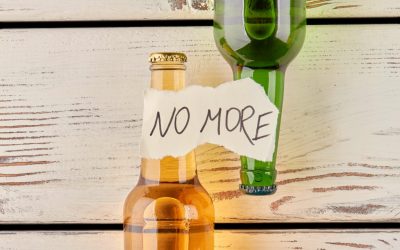Unlike acute withdrawal, which has mostly physical symptoms, post-acute withdrawal syndrome (PAWS) has mostly psychological and emotional symptoms. Its symptoms also tend to be similar for most addictions, unlike acute withdrawal, which tends to have specific symptoms for each addiction [1]. A basic fear of recovery is that the individual is not capable of recovery.
To save lives, overdose antidote should be sold over-the-counter, advocates argue
Depending on the substances an individual uses and what their goals are for long-term recovery, the plan is individualized to meet their needs. Here’s another way of thinking about what recovery might look like for you. The first stage of recovery occurs even before an individual who is struggling with substance use disorder has acknowledged that they have a problem. They believe that their substance use is under control and will often refuse to listen to advice or guidance. They are also very unlikely to acknowledge any harm that is caused by their substance use or the behaviors linked to it. Of course, before you can reach recovery, you must reach remission.

Get Involved in Support Groups

The National Recovery Month webpage provides a host of resources that can be used to help promote the observance. Some of the recovery organizations Unick and Tuten are working with are operations that are using sophisticated methods for data collection and using that evidence to influence practice, citing as one example Mosaic Community Services. Sober living homes are another type of substance-free living environment.103 Many of these have a house manager or leader and mandate attendance by residents at 12-step mutual aid groups. Therefore, residence in the sober living home cannot be assumed to have caused the better outcomes observed. Despite the growing popularity and importance of “recovery” as a concept, many people wonder what the term really means and why it matters.
How Do You Become Sober?
- The NIH HEAL Initiative also partners with NIDA to fund research within the Consortium on Addiction Recovery Science, a nationwide effort that focuses on research network-building initiatives.
- The National Recovery Month webpage provides a host of resources that can be used to help promote the observance.
- These influence and help to determine the most effective pathway(s) of recovery for each person.
- Aftercare services or ongoing treatment provides the best chances of avoiding future relapse.
While some individuals in recovery may be able to return to controlled substance use, many are not (e.g., Burman, 1997). Therapists should work with clients on keeping in mind the potential consequences of any future substance use. The significance of social support reported here underlines the importance of social context in addictive disorders and in their resolution. In clinical settings, it is critical to learn about clients’ social networks and about network members’ attitudes toward abstinence and recovery. Finally, clinicians should emphasize the importance of establishing and maintaining affiliation with recovery support groups such as 12-step fellowships. The important role of clinicians in referring clients to 12-step groups has been consistently recognized (e.g., Caldwell, 1999; Humphreys, 1997; Cross et al., 1990; Vaillant, 1983).
- Whatever the stress relief that comes from being in a group, many others are not comfortable with the religiosity, the steady focus on the dangers of relapse rather than on growth, or the subscription to powerlessness of AA and NA.
- Denied users will not or cannot fully acknowledge the extent of their addiction.
- Formal barriers to reentering treatment are discussed and addressed, and scheduling and transportation to treatment are arranged.
All of the participants in our study had received some form of treatment, but they found social relationships outside of treatment just as helpful in their successful recovery from SUD. The participants whose perspectives are represented in narratives 1 and 2 benefited, in particular, from the recognition of peers or supervisors. This recognition seems to involve being seen as a person with strengths and weaknesses, aside from having a SUD. Those who attended 12-step programs emphasized the role of a peer sponsor, which is one of the cornerstones in the 12-step program philosophy,37,38 as a crucial factor for initiating abstinence. Considering our findings, service providers’ abilities to establish close relationships with their clients, without neglecting their professionalism, seem to be paramount to initiating abstinence.
HP conducted a face-to-face interview, lasting approximately 1 hour, with each of the 18 participants in their homes. Each participant was asked to consider his or her experiences with abstaining from severe substance use, including both decisions and reasons for abstaining or moderation, and strategies and requirements for remaining abstinent. The intention was to let the participants reflect freely on their experiences and to ask clarifying questions without making interpretations.31 The interviews were recorded digitally, and verbatim transcripts were made of each interview before performing the next interview. The growth stage is about developing skills that individuals may have never learned and that predisposed them to addiction [1,2]. The repair stage of recovery was about catching up, and the growth stage is about moving forward.
- A wonderful counselor took my son under his wing and took him seriously when my son said he wanted to get better.
- Receiving support from family and loved ones is a significant indicator of success in long-term recovery, so these conversations are important.
- The specific meaning of recovery can also vary across cultures and communities.
- Recovery signals a dramatic shift in the expectation for positive outcomes for individuals who experience mental and substance use conditions or the co-occurring of the two.

Some of the most helpful strategies for dealing with cravings are summarized in the acronym DEADS. Sharing experiences and struggles with people who can understand what you are dealing with can significantly bolster your recovery. Being involved in support groups that offer encouragement, resources, Top 5 Advantages of Staying in a Sober Living House and both practical and emotional support can help individuals who struggle with substance use maintain long-term recovery. This article is for anyone wondering if their porn use is crossing the line into addiction and for anyone wondering if someone they care about is experiencing porn addiction.
- The intervention also provided motivational text messages and telephone calls when participants failed to achieve goals or asked for support.47 Participants in the SMS condition responded to 88% of the SMS prompts, and 44% sent at least one request for help.
- Recovery-oriented policies have also supported diverse populations.
Under all circumstances, recovery takes time because it is a process in which brain cells gradually recover the capacity to respond to natural sources of reward and restore control over the impulse to use. Another widely applied benchmark of recovery is the cessation of negative effects on oneself or any aspect of life. Many definitions of recovery include not https://edutechinsider.com/top-5-advantages-of-staying-in-a-sober-living-house/ only the return to personal health but participation in the roles and responsibilities of society. The third stage involves the individual acknowledging their problem and beginning preparation to receive treatment. Receiving support from family and loved ones is a significant indicator of success in long-term recovery, so these conversations are important.
It may include clinical treatment, medications, faith-based approaches, peer support, family support, self-care, and other approaches. Recovery is characterized by continual growth and improvement in one’s health and wellness and managing setbacks. Because setbacks are a natural part of life, resilience becomes a key component of recovery. In the past few decades, science has brought us effective behavioral and medication addiction treatments as well as lifesaving treatments that revive people from overdose and give them a chance to seek lasting recovery. Lived experience suggests that individuals may need tools to manage their health long-term, as well as friendship and support from those with similar lived experiences. Research also suggests that support from families can be key to recovery, but that few families become engaged in the process.
